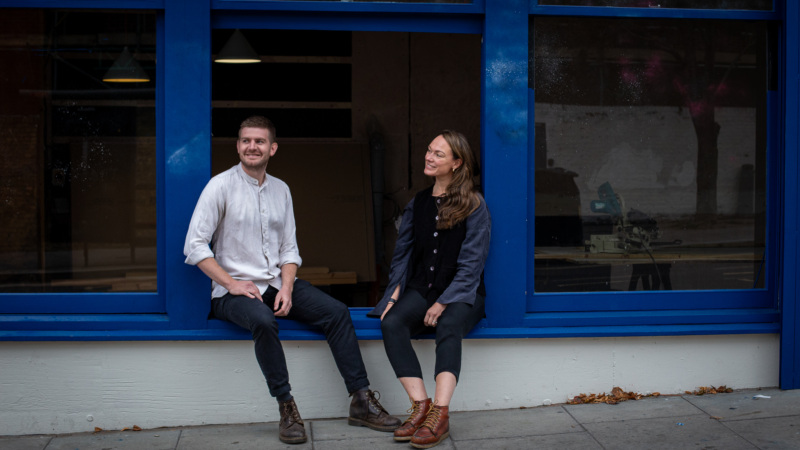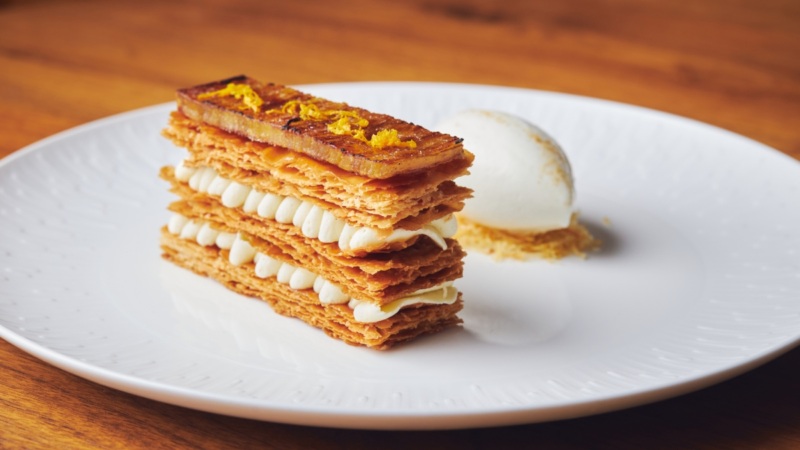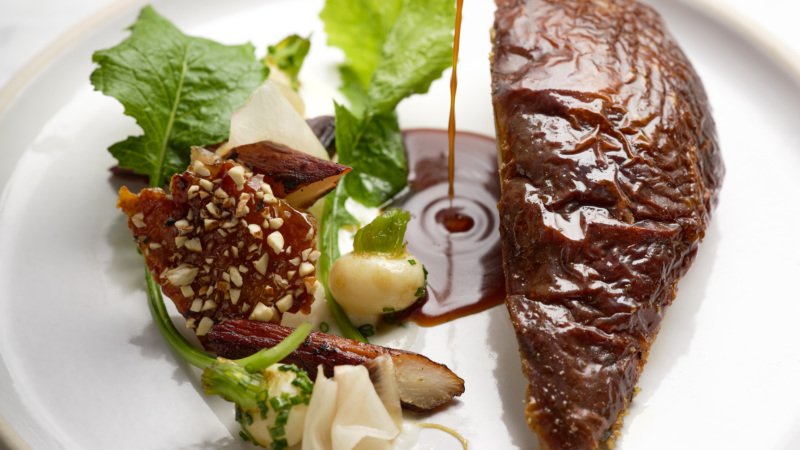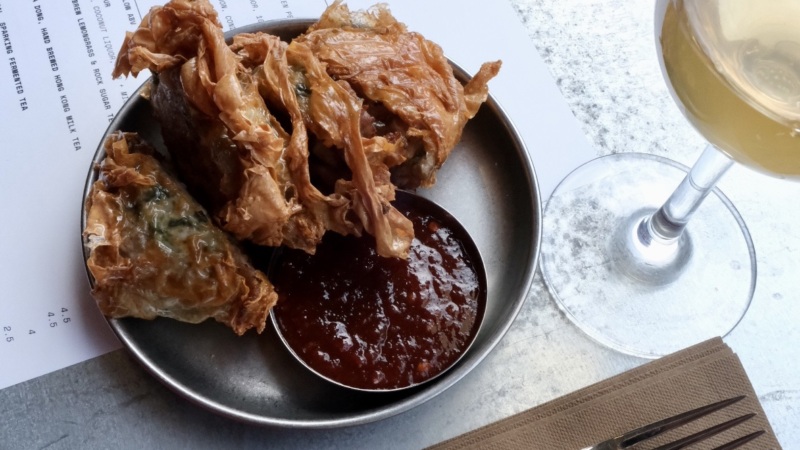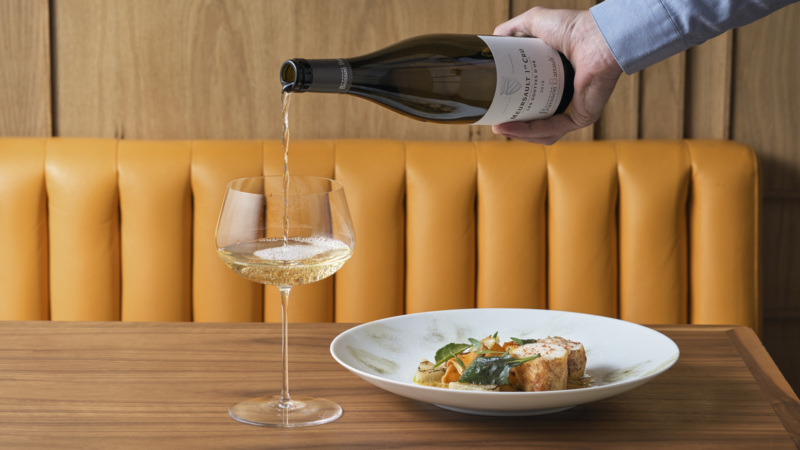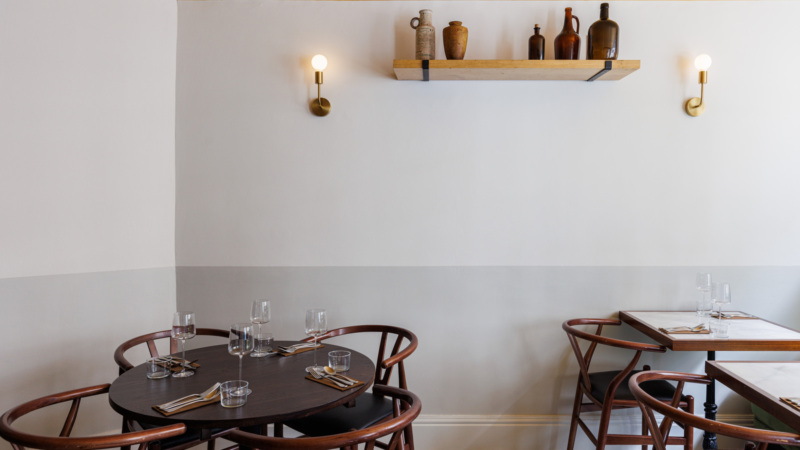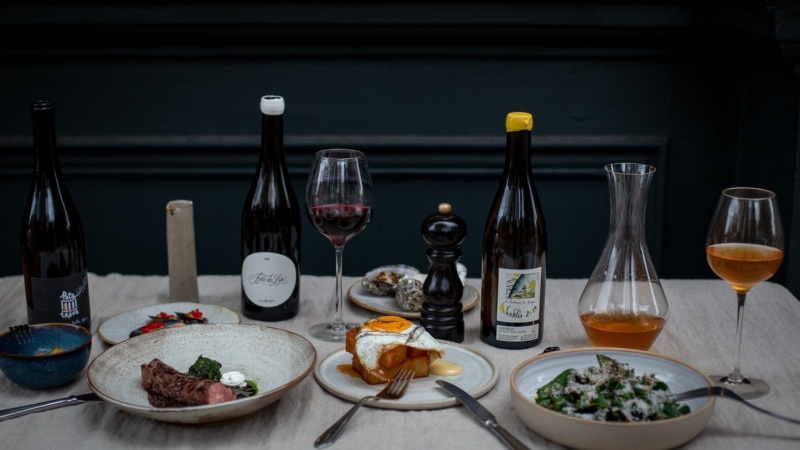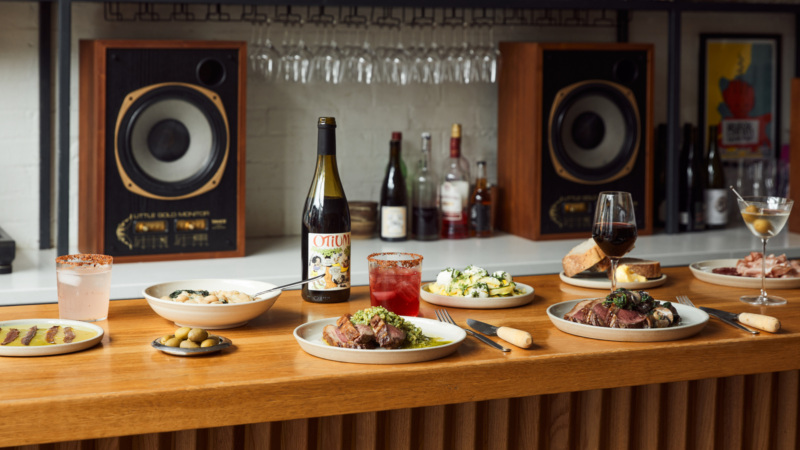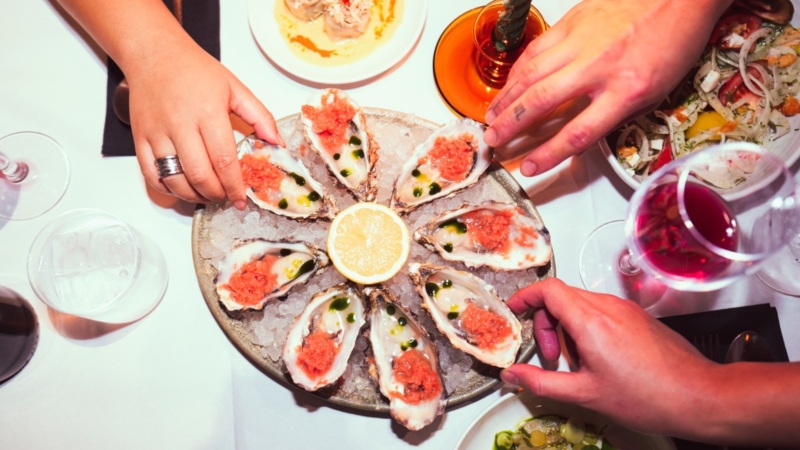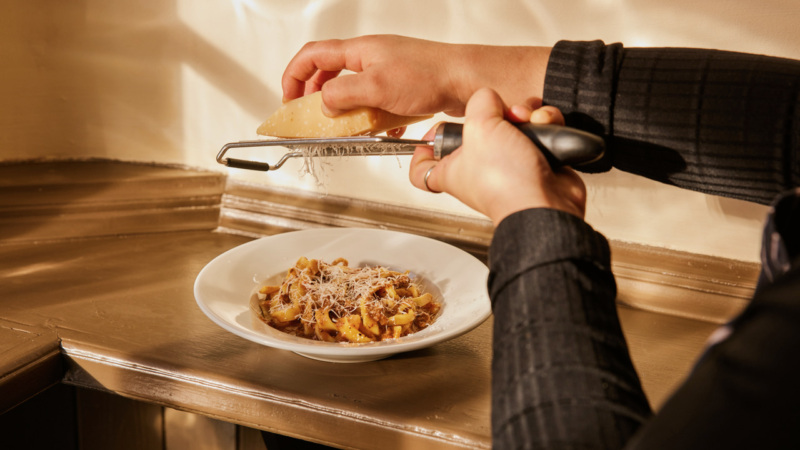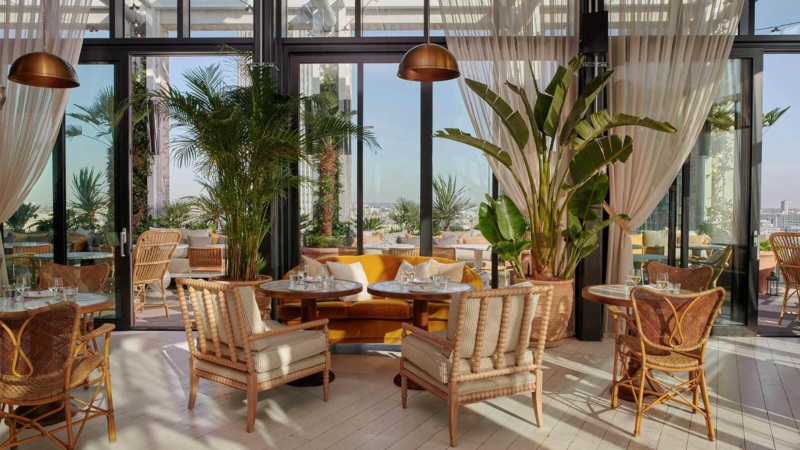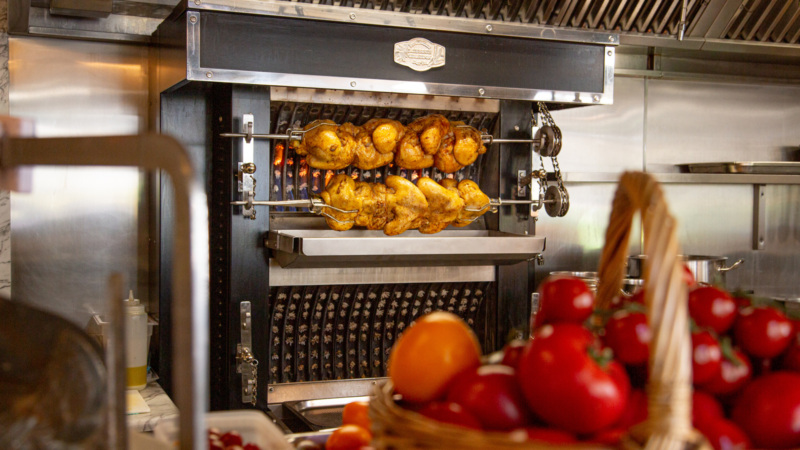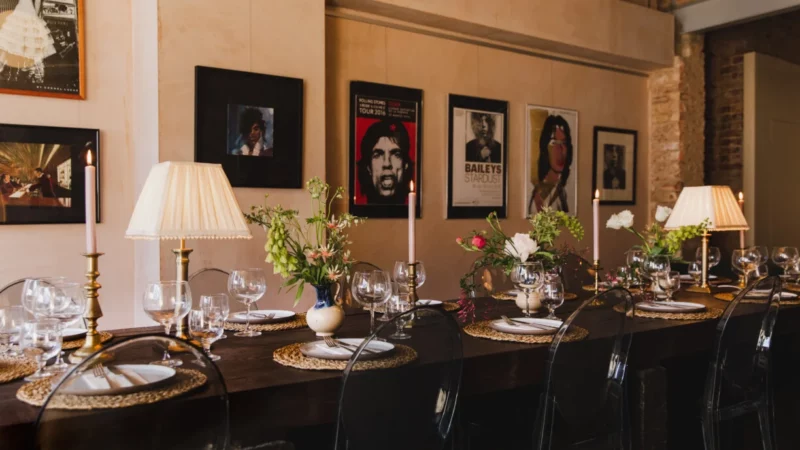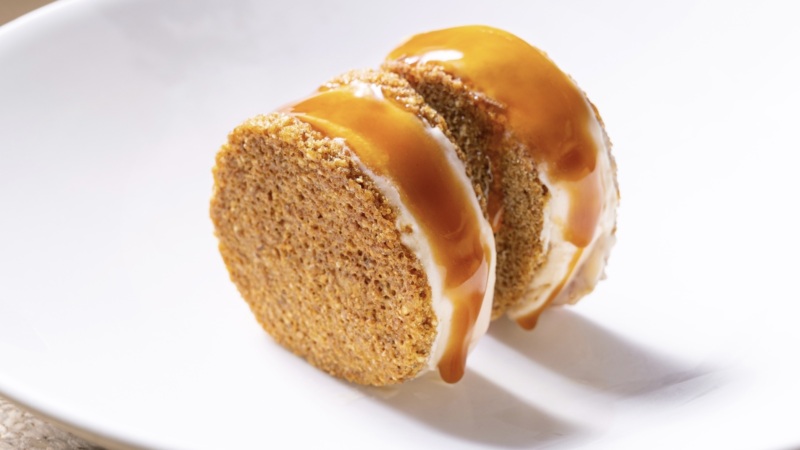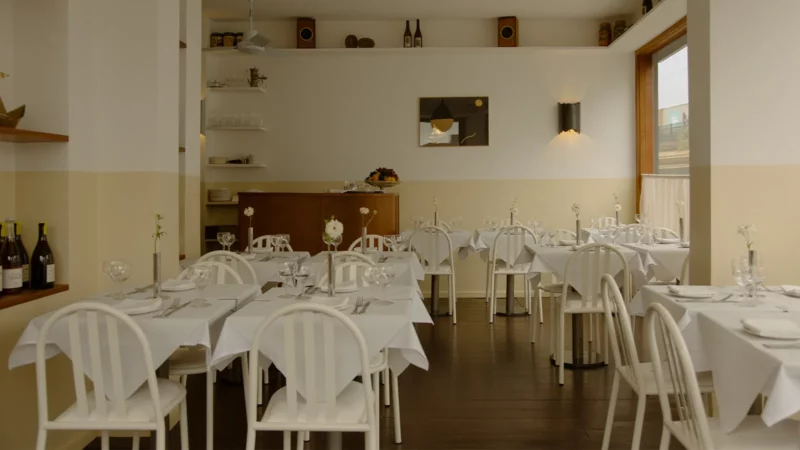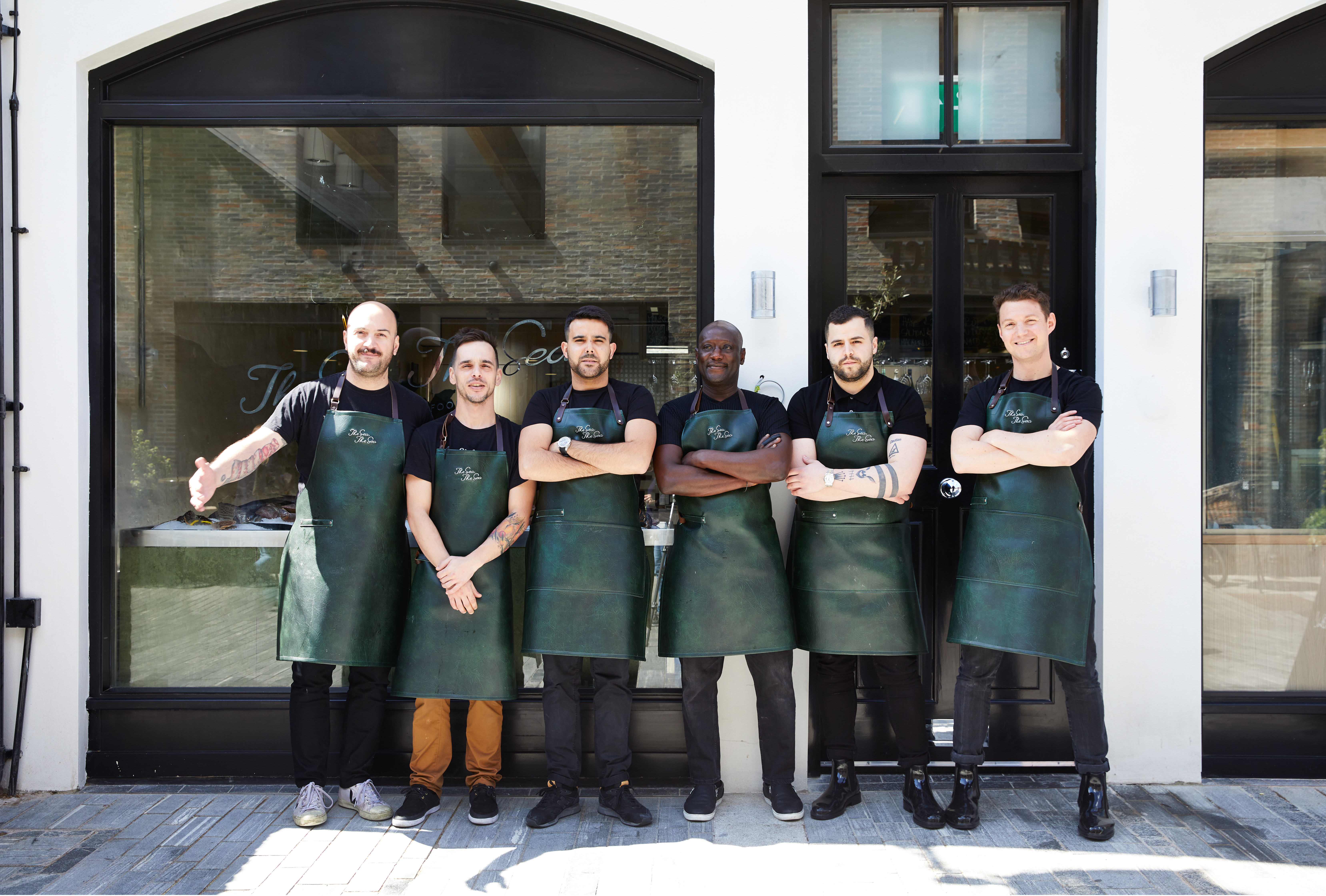
Raw: The Sea, The Sea, And Leandro Carreira’s Next Act
Visiting in early April, things look well-set with two weeks to go before the official opening of The Sea, The Sea, the final addition to Pavilion Road’s collection of food emporiums and restaurants. Boxes lie half unpacked, laptops and printed plans are out, and there’s the usual apologies for “not-quite-finished room” and “fish ageing display fridge on order”.
But it’s shiny, slick and in better shape than most projects at the same stage. Which is unsurprising: as one of the co-founders and former MD of Bonnie Gull, owner Alex Hunter is well-versed in hospitality and indeed the business of seafood. In the room too is Leandro Carreira, who is consulting on the menu and kitchen logistics.
Carreira has been a ‘name’ in London food circles for a number of years now, having followed three years as sous chef at Mugaritz, an internationally celebrated restaurant on the edge of San Sebastian, with a further three as head chef at Nuno Mendes’ former flagship Viajante. He then embarked on a four year project culminating in the opening of his first restaurant, Londrino, in December 2017.
With its slack-jaw-level beautiful decor, trademark inventive food, and location a stone’s throw from the thrum of Bermondsey Street in one direction, and the bustle of London Bridge station in the other, Londrino looked odds-on to become a landmark.
Yet in February this year, within fifteen months of opening, Carreira and his investors admitted defeat and boarded up.
One might’ve expected Carreira to go to ground. But he’s swiftly (perhaps necessarily) bounced back and on board at The Sea, The Sea, bringing staff from his former restaurant with him. We read mostly about ambitious new ventures and lauded success stories. Is it too soon to speak about the collapse of Londrino? Are his wounds, like the crudo, raw?
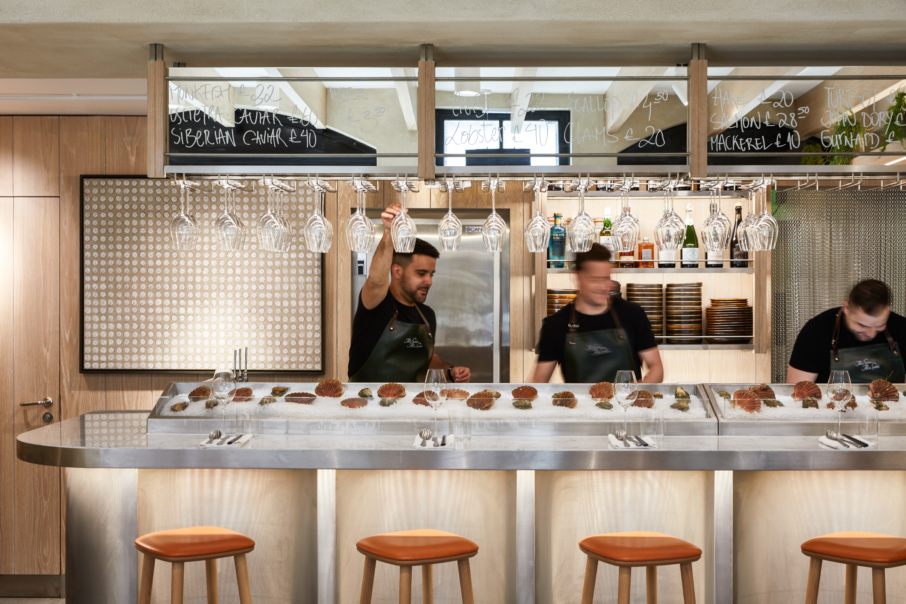
The Sea, The Sea
Carreira finishes his prep before we speak, moving a vat of mackerel fillets curing in kombu brine (you can take the chef out of East London…) and cleaning down the central filleting bench that at night becomes a communal table.
“After the closure of Londrino, Alex approached me to see if I wanted to be involved in this project. I was like, you know what, this is nice. It’s a lot of the things that I like to do: fresh fish and seafood, pure and focused food. It fits me well,” he says.
“It’s not a restaurant. It’s a fishmongers and seafood bar. During the day we’ll sell fresh produce and related deli products that we’ll make ourself. At night, we move things around to accommodate diners—there’s a counter bar lined with oysters, clams and so on. The site dictates what we can cook: it’s raw, cured, steamed. The kitchen is basically a bench, with two fridges and an induction hob; everything should be super streamlined, and that pushes our creativity—simple, but smart. Just two or three ingredients on a plate, you know. But the starting point is quality produce, and then we think hard about what to do with it. We really want to stress that it’s not a restaurant. But then again, you’ll eat well.”
His eyes glint. He’s confident. He seems genuinely enthused about the project. Perhaps relieved as well that on this one it’s not all about him; though there’s personal connection too.
“I grew up in front of the sea back in Portugal. I’m from a fishing town between Lisbon and Porto, and I spent most of my childhood on the South West Coast.”
“It’s not just that background,” he continues. “I love it. You know: fish, shellfish. As an ingredient, seafood honestly makes me more excited than meat. I actually struggle to think of meat dishes, whereas I’m constantly thinking about things from the ocean. So this has come at a good time for me, but it’s a natural fit. At Londrino, our savoury menu was maybe 90% fish. We do eat a lot of fish at home, but I don’t know if it’s really a Portuguese thing, or the fact that I just like it.”
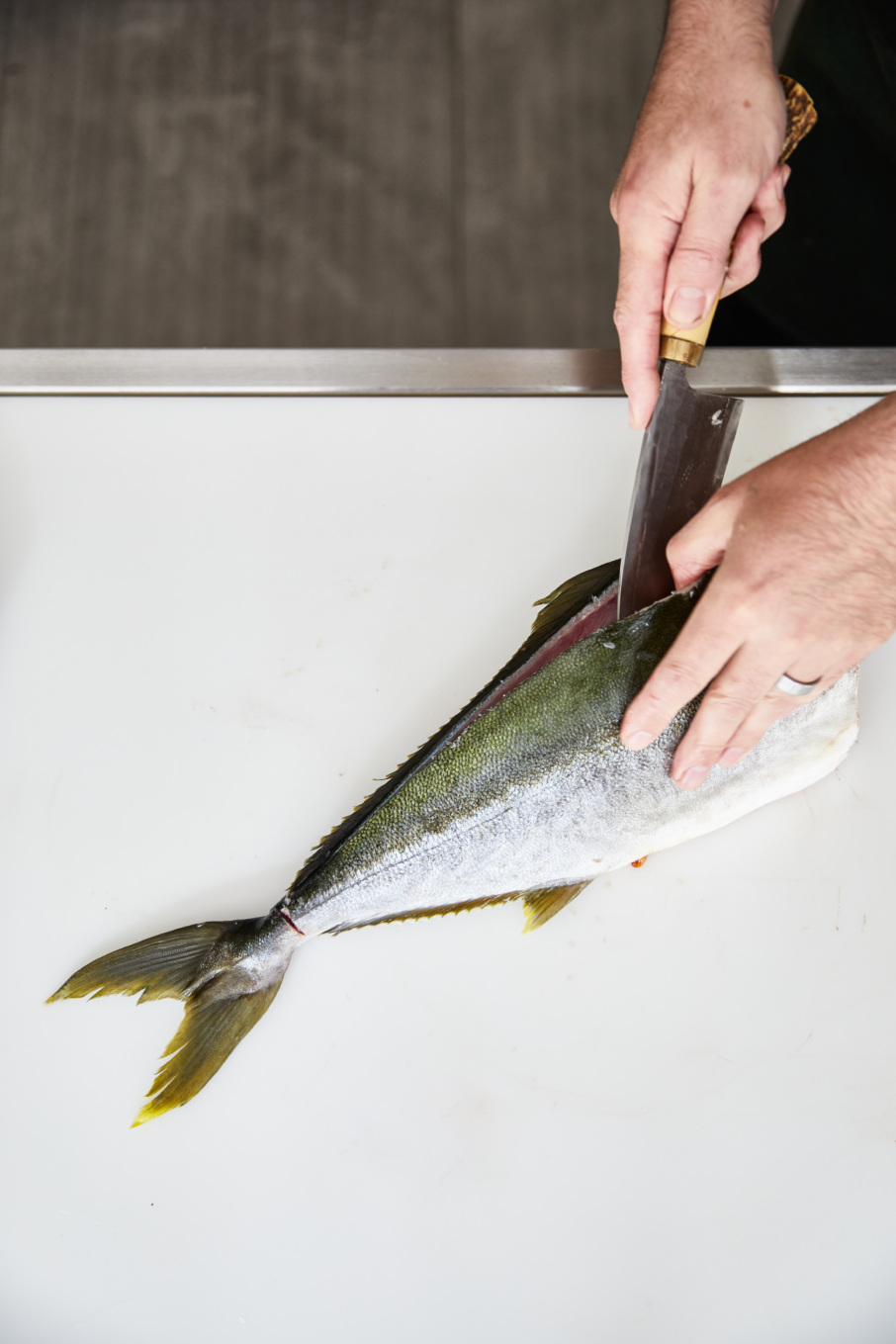
Precarious times
Speaking openly about emotion and ‘failure’ doesn’t come easily to two middle-aged male strangers, but now seems as good a time as any to breach the topic of Londrino. Tellingly, the glint fades, shoulders hunch, and though he’s candid, there’s an understandable shift in mood.
“Yep, Londrino closed. Which was really sad. Everything in my career to that point pointed to it and it took me a long four years to set up; four years from the end of Viajante. And it was so personal. The people that were close to me and who followed the run-up, know how hard I worked. I spent two years going round the world doing pop-ups, refining the concept, building the name. There were short one-offs at places like at Koya, and then a year at Climpson’s Arch, which was really challenging. There was a lot of me invested in this. Four years of not having a permanent home. The emotional side of it, quite apart from the finances, was, you know…”, he tails off.
“I think we overestimated the area. Both the size and perhaps the type of the restaurant for the area, I mean. If you think about it, a restaurant with seventy seats, it’s not that big. It’s not that big! Seventy seats should’ve been doable. But it was generously spaced and perhaps that didn’t create a buzz when things were quiet. Perhaps the concept was not right for the area or that volume of people. I guess it was a combination of things. I don’t know.”
That it is precarious times for the hospitality industry has been well-documented over the past eighteen months. Rising rents, wages and business rates are among a number of challenges creating a conundrum that’s hard to crack. It’s no secret that the location, location, location element has always been key. And Carreira is right: evidently, Snowsfields in Bermondsey did not have the footfall to support a lunch trade.
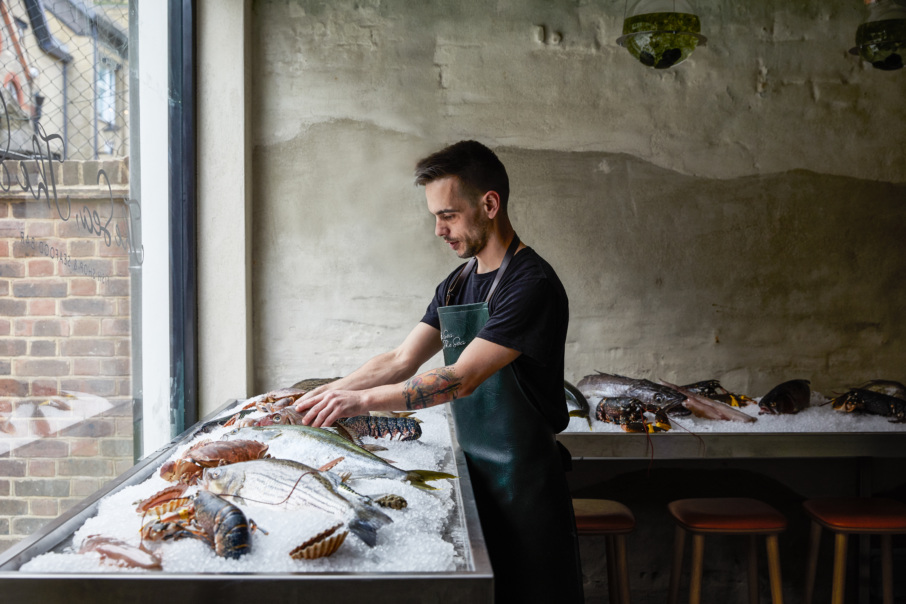
“When we first saw the site, we thought, wow. Jesus Christ, on paper it was great. But the reality is during the day, almost no one walks past. And that’s dispiriting. Not just for me but the people working with me.”
Deep down, did he wonder if there was more to it than that?
“We were not a conventional restaurant. People who liked it loved it, others hated it. There was no middle.”
“Sometimes dishes work, sometimes dishes don’t work. But I think that put us on a limb and people don’t always like that. At the end of the day it’s maths, isn’t it? And maybe we didn’t get it right. I’m proud of what we did.”
Carreira appears philosophical. But ultimately, the subject of Londrino is a raw one. Here was a deeply personal project that didn’t pass muster. And while the site was not right for the concept, he hints he knows there were other reasons too.
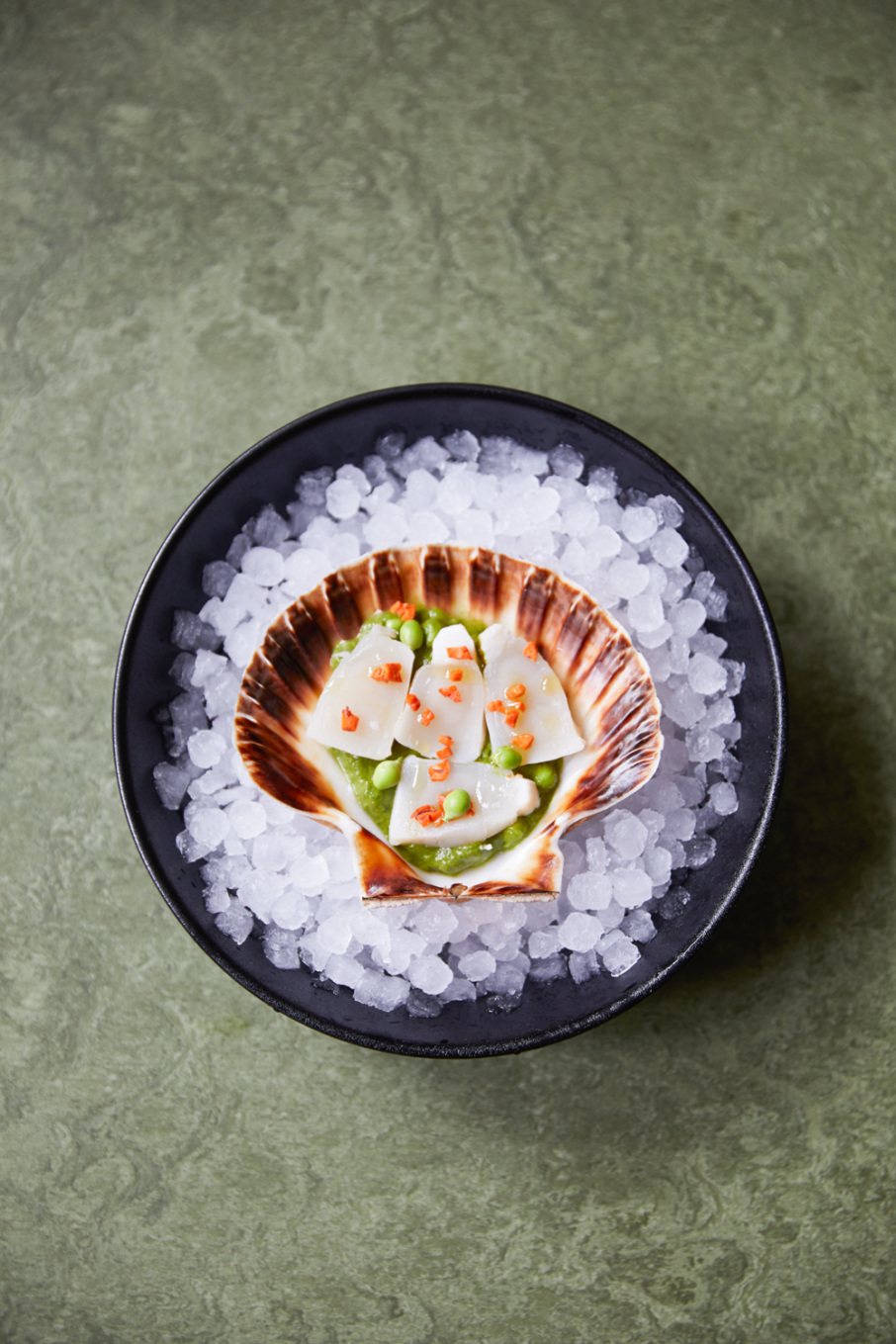
Reacting to the moment
The spark returns when we talk again about the new project, his thoughts on creativity and, ultimately, cooking.
“Last week at a preview I served two cod collars cured in fermented rice (koji) and then steamed, and the guest said it’s the best piece of fish he’d ever had,” he beams.
“The ageing fridge we’re waiting for will be a step forward too, as further down the line we’ll start doing that to improve flavour, texture, quality. That’ll be the most challenging thing—selling fish that’s not ‘fresh’ but a couple of days old—and we’re going to go gently to start with. But we’ll definitely keep one or two interesting dishes on at all times. I want to show how we should be using all of a fish, that it’s stupid to only use the loin. It has to be a gentle, educational process. But having a shop that turns into a bar is perfect for that.”
Challenging, thought-provoking, creative, educational. These are clearly things that drive and enthuse Carreira, who admits that over a twenty year career, the six years served at Mugaritz and Viajante have had the greatest impact on his cooking and creative philosophy.
“I don’t go out as much now as I used to. It’s hard to, as we’ve a one-year old and my wife works super hard too. But Tata [Eatery], Koya, Kiln—yeah, I like to be challenged. On the face of it casual, not too much fuss, but actually skilful and interesting. I like that. I like when the cook is smart.”
There’s clearly a tension between wanting to offer a style of food that’s thought-provoking, and the awareness that, evidently, a more casual, commercial alternative might be an easier road to travel on. The Sea, The Sea may well be an additional informative experience in that regard.
What are the things he will carry on from his most recent project?
“I think cooking and skilful creativity is about being reactive to ingredients and the moment. We get to do that here, to react to the catch that’s brought in. But there are one or two dishes for sure that I’ll keep. The cod and potatoes from Londrino we’ll do here, for example.
I thought our Sunday lunches were superb. And the ice cream programme was amazing. They’re all things you would eat in Portugal with your family, aren’t they? I’m in no rush to do a restaurant again. Maybe I’ll think about a more low-key thing if I do. In fact, my original plan was I wanted to do a proper old tavern, but someone said to me, ‘Leo, you can’t do that’. But what’s the difference between a good tavern and a good restaurant?”
“Anyway, right now I’m just super pumped for this. I think the whole project is shaping up nicely.”
—
The Sea, The Sea, fishmongers and seafood bar is now open
Ed Smith (@rocketandsquash) is a London based food and recipe writer.

